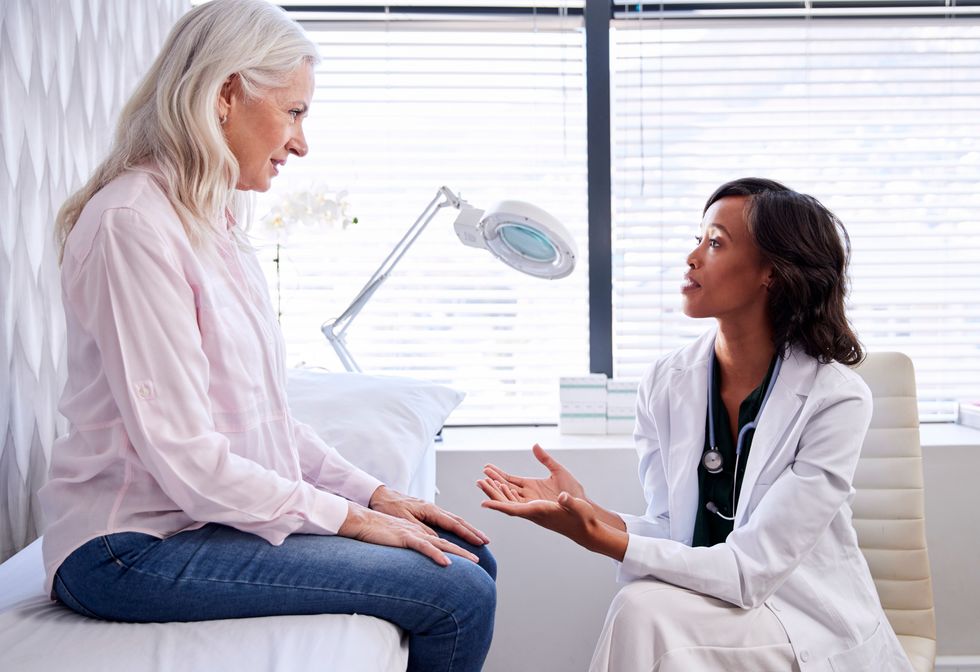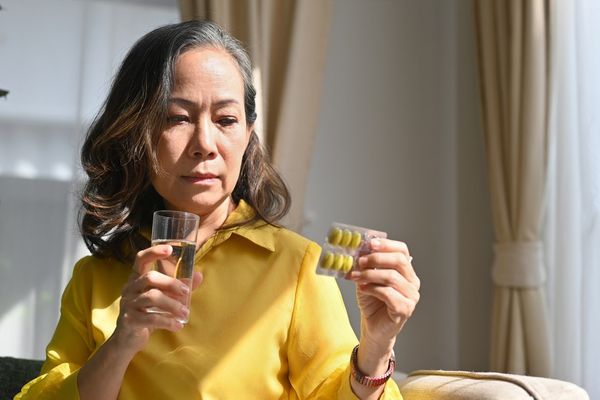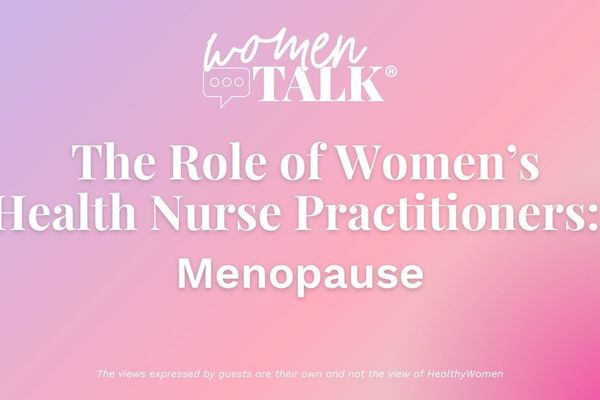Changes, questions, confusion, surprise. Welcome to life after 40.
At HealthyWomen, we hear stories of midlife change and uncertainty every day. As women move into midlife, our health care needs change and so do the conversations we need to be having with our health care providers.
But are we?
In a new major and comprehensive survey of more than 3,100 midlife women, the answer seems shaded in variations of "no." Yes, there are certain topics and conditions we're talking about with our health care providers (and friends and family), but there are many, many others that we're keeping to ourselves, even as we grow increasingly focused on making the right choices so that we can age in the healthiest ways possible.
To reveal how women are viewing and experiencing midlife—and, specifically, menopause—HealthyWomen and WebMD partnered to create Aging Smart, Aging Well: How Women Make Decisions About Their Health in the 21st Century, a comprehensive look at midlife women's health concerns, behaviors and attitudes.
"Understanding the health concerns of women, how women experience menopause, their symptoms and where there are gaps and needs in education and conversation are at the core of HealthyWomen's mission," says HealthyWomen CEO Beth Battaglino, RN-C. "We felt this partnership was a perfect opportunity to begin a new conversation on menopause, whether focused on managing menopausal symptoms and or more generally, the concerns, experiences and needs of women today."
"WebMD and Healthy Women share a common goal: that better information leads to better health," adds John Whyte, MD, WebMD's chief medical officer. "This is one of the first comprehensive research surveys that looks at knowledge attitudes and beliefs and segments the data based on race/ethnicity, menopausal status, socioeconomic status and geography."
The result is a unique nationwide initiative designed to identify knowledge gaps, teachable moments and opportunities for health care providers, advocates and policymakers to explore midlife well-being, menopause and related comorbidities impacting women.
The report gathered input on women's knowledge of menopause and its implications for their health, as well as their knowledge of and/or experience with available treatment options. The survey also encouraged women to weigh in on issues they might not always find easy to discuss, like sexual desire and sexual health.
Why focus on midlife and menopause? Because it's a time of transition, when important and impactful health care decisions need to be made that may affect the rest of your life—decisions that will shape the future of women and their families as well, with short- and long-term health consequences like osteoporosis, heart disease and the physical and emotional symptoms that menopause brings.
"It's more important than ever to address women's physical, mental and sexual health," notes Dr. Whyte.
Battaglino agrees. "Understanding the issues that impact women's quality of life shows where there are gaps and need for improvement and a need for a new conversation. Through this partnership the opportunity to raise awareness, we can provide the information and resources women and their providers need to manage healthy aging."
Even if women don't experience dramatic health consequences, this period of life transition can push many to search for new strategies to stay healthy or enhance their health, according to a 2005 Kaiser Permanente study published in The Permanente Journal, which found that women are not satisfied with the information they find regarding menopause and their health care options. Many women report that they leave their medical appointments with unanswered questions, while others say they are not aware of the long-term health risks of menopause.
Nearly 15 years later, startling gaps remain. Women's lives are hectic. Physician visits are time-limited. Women are embarrassed to bring up certain issues with their health care providers. And the providers aren't asking the right questions.
Stephanie Faubion, MD, who serves as medical director of the North American Menopause Society and director of the Penny and Bill George Clinic at the Mayo Clinic Center for Women's Health, stresses the value and importance of this survey.
"The partnership between WebMD and HealthyWomen highlights the voices of women in a scientifically sound study and will help us better understand the gaps in education and care that women experience," says Dr. Faubion, who discussed the findings at a launch event at the National Press Club on December 12. "This knowledge will help us focus our clinical, educational and research efforts to improve the care of aging women, an important, often underserved and growing demographic."
Indeed, as the number of women entering midlife grows at an unprecedented rate and an estimated 6,000 women reach menopause every day, it's imperative to get a full view of women's healthy aging needs and open a dialogue among them, their health care providers and policymakers. Doing so can bring meaningful and significant change to women's physical, mental and sexual health so that they can not only live longer but live better, too.







